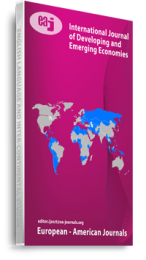This study is on the quantitative impact of Small and medium scale enterprises (SMEs) on Nigeria’s economic growth performance for the sample period 1993 to 2011. The econometric technique adopted for the study was multiple regression method based on ordinary least squares technique. However, in order to avoid the incidence of spurious estimates, evidence from the ADF test conducted revealed that the variables are integrated of order two,1(2). The Johansen test conducted showed evidence of long run equilibrium relationship between small and medium scale enterprises and economic growth. However, in the mean time, output of SMEs (SMEO) does not make any significant contribution to Nigeria’s economic growth performance. The study concludes that poor government policies, on tariffs and incentives, bribery and corruption, non-existent entrepreneurial development centers and poor state of infrastructure act as impediments to the growth and development of SMEs in Nigeria. The recommendations are that governments at all levels should endeavor to establish Microfinance institutions for easy access to credit by SMEs, introduce financial literacy in schools, establish entrepreneurial development centers for capacity building, provide enough infrastructure, especially electricity and road net work, and finally establish agencies for control of bribery and corruption.
Keywords: Bank credit, Inflation, Interest rates., Small and Medium Enterprises, economic growth

